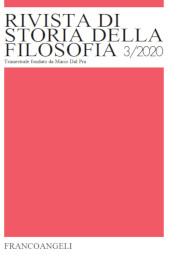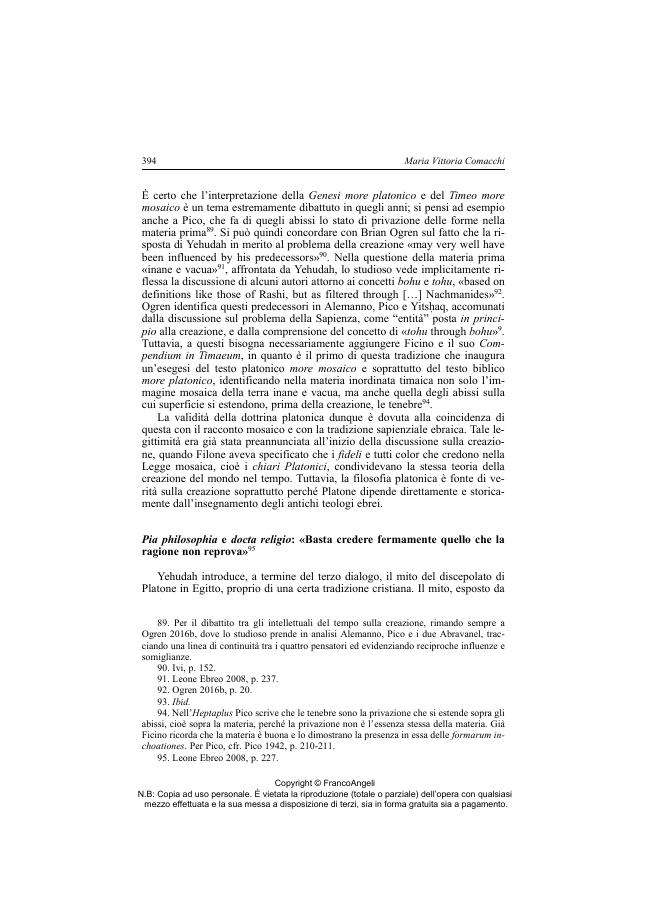Basta credere fermamente quel che la ragione non reprova : la renovatio ficiniana in un passo sulla creazione dei Dialoghi d'amore di Yehudah Abarbanel
381-407 p.
Basta credere fermamente quel che la ragione non reprova: The Ficinian Renovatio in a Passage on Creation in Yehudah Abarbanel's Dialoghi d'amore. The Article investigates how Yehudah Abarbanel recasts, thanks to the Ficinian Platonism, his conception of Judaism as philosophical religion and his idea of philosophy as religious wisdom. After taking into account the Jewish response to Yehudah, an analysis is made of the passage in the Dialoghi d'amore in which he discusses the theory of the creatio ex nihilo. Following in the footsteps of Marsilio Ficino, Yehudah argues the coincidence between Mosaic and Platonic teachings and thus between fede (faith) and ragione (reason/intellect), reading Plato through the medium of the Mosaic theology.
For Yehudah, it is also possible to assert that Plato's philosophy, a theological wisdom (similarly to Ficino's pia philosophia), derives historically from the ancient Jews. Yet, in saving the priority of Jewish tradition, Yehudah radically reinterprets it. He makes the Mosaic tradition a Platonic and intellectual faith, a Ficinian docta religio, against the Peripatetic and Aristotelian doctrines. Hence, this Article argues that Abarbanel strongly believes in a renewed way to be a philosopher and a believer. [Testo dell'editore].
Forma parte de
Rivista di storia della filosofia : LXXV, 3, 2020-
Artículos del mismo número (disponibles individualmente)
-
Información
Código DOI: 10.3280/SF2020-003002
ISSN: 1972-5558
KEYWORDS
- Yehudah Abarbanel (Leone Ebreo), Marsilio Ficino, creatio ex nihilo, Timeus, Moses, pia philosophia, prisca theologia, intellectual religion



